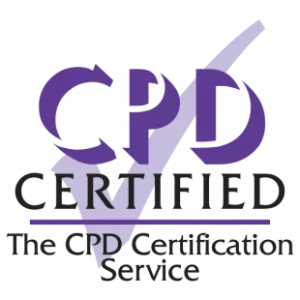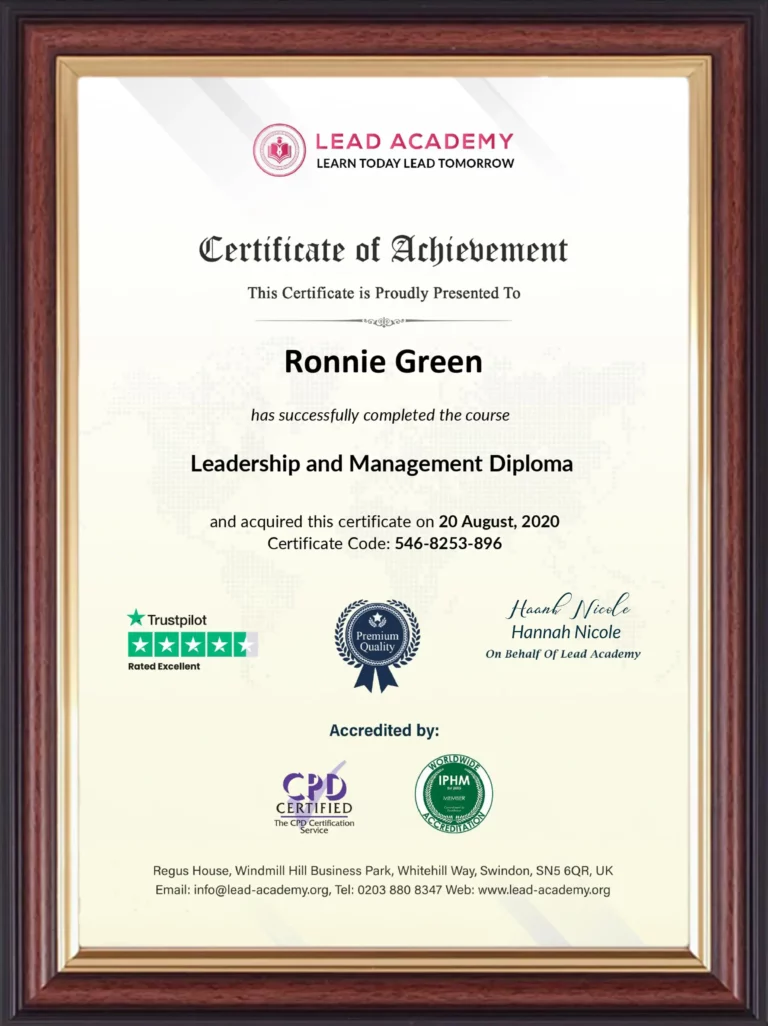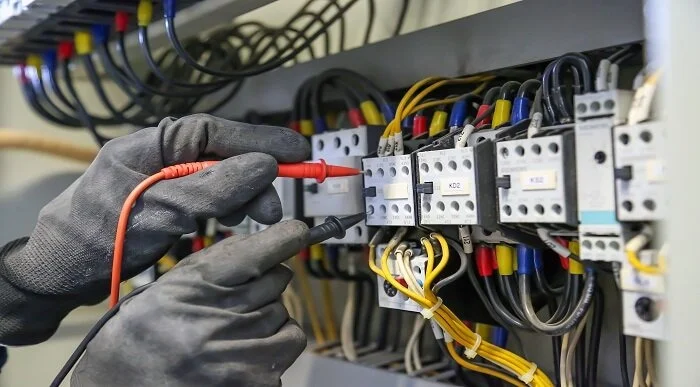
Self-Paced Online Learning
Learn on your own accord, wherever you want, whenever you want.
4 Instalment Plan on checkout
You have the option to choose from four easy instalment plans.
14 Days Money Back Guarantee
Hassle-free guarantee on purchase, ensuring quality & your peace of mind.
Course Fee
£29
£125
 77% OFF
77% OFF
👉 CPD UK Accredited PDF Certificate Included
![]() 4 interest-free payments of £7.25
4 interest-free payments of £7.25


Why Electric Circuits Training Course right for you?
Are you looking to begin your electric circuits career or want to develop more advanced skills in electric circuits? Then this electric circuits – complete online training course will set you up with a solid foundation to become a confident electrical engineer and help you to develop your expertise in electric circuits.
This electric circuits – complete online training course is accredited by the CPD UK & IPHM. CPD is globally recognised by employers, professional organisations and academic intuitions, thus a certificate from CPD Certification Service creates value towards your professional goal and achievement. CPD certified certificates are accepted by thousands of professional bodies and government regulators here in the UK and around the world.
Whether you are self-taught and you want to fill in the gaps for better efficiency and productivity, this electric circuits – complete online training course course will set you up with a solid foundation to become a confident electrical engineer and develop more advanced skills. Gain the essential skills and knowledge you need to propel your career forward as a electrical engineer.
The electric circuits – complete online training course will set you up with the appropriate skills and experience needed for the job and is ideal for both beginners and those currently working as a electrical engineer.
This comprehensive electric circuits – complete online training course is the perfect way to kickstart your career in the field of electric circuits. This electric circuits – complete online training course will give you a competitive advantage in your career, making you stand out from all other applicants and employees.
If you’re interested in working as a electrical engineer or want to learn more skills on electric circuits but unsure of where to start, then this electric circuits – complete online training course will set you up with a solid foundation to become a confident electrical engineer and develop more advanced skills.
As one of the leading course providers and most renowned e-learning specialists online, we’re dedicated to giving you the best educational experience possible. This electric circuits – complete online training course course is crafted by industry expert, to enable you to learn quickly and efficiently, and at your own pace and convenience.
Electric Circuits Training Course Details

CPD certificates are accepted by thousands of professional bodies and government regulators here in the UK and around the world. Many organisations look for employees with CPD requirements, which means, that by doing this course, you would be a potential candidate in your respective field.
Basic Concepts
- System of Units
- What Is an Electric Charge.
- What Is an Electric Current.
- Example 1
- Example 2
- Example 3
- What is Voltage.
- What is Power.
- What is Energy.
- Example 4
- Example 5
- Dependent and Independent Sources
- Example 6 Part 1
- Example 6 Part 2
- Application 1 Cathode Ray Tube
- Example 71
- Application 2 Electricity Bills
Basic Laws
- Introduction to Basic Laws
- Definition of Resistance
- Ohm’s Law
- Types of Resistances
- Open and Short Circuit
- Definition of Conductance
- Example 1
- Example 2
- Example 3
- Branch, Node and Loops
- Series and Parallel Connection
- KCL
- KVL
- Example 4
- Example 5
- Example 6
- Series Resistors and Voltage Division
- Parallel Resistors and Current Division
- Analogy between Resistance and Conductance
- Example 7
- Example 8
- Introduction to Delta-Wye Transformation
- Delta to Wye Transformation
- Wye to Delta Transformation
- Example 9
- Example 10
- Application Lighting Bulbs
- Example 11
Methods of Analysis
- Introduction to Methods of Analysis
- Nodal Analysis with No Voltage Source
- Example 1
- Cramer’s Method
- Nodal Analysis with Voltage Source
- Example 2
- Example 3
- Mesh Analysis with No Current Source
- Example 4
- Example 5
- Mesh Analysis with Current Source
- Example 6
- Nodal Vs Mesh Analysis
- Application DC Transistor
- Example 7
Circuit Theorems
- Introduction to Circuit Theorems
- Linearity of Circuit
- Example 1
- Superposition Theorem
- Example 2
- Example 3
- Source Transformation
- Example 4
- Example 5
- Thevenin Theorem
- Example 6
- Example 7
- Norton’s Theorem
- Example 8
- Example 9
- Maximum Power Transfer
- Example 10
- Resistance Measurement
- Example 11
- Example 12
- Summary
Operational Amplifiers
- Introduction to Operational Amplifiers
- Construction of Operational Amplifiers
- Equivalent Circuit of non Ideal Op Amp
- Vo Vs Vd Relation Curve
- Example 1
- Ideal Op Amp
- Example 2
- Inverting Amplifier
- Example 3
- Example 4
- Non Inverting Amplifier
- Example 5
- Summing Amplifier
- Example 6
- Difference amplifier
- Example 7
- Cascaded Op Amp Circuits
- Example 8
- Application Digital to Analog Converter
- Example 9
- Instrumentation Amplifiers
- Instrumentation Amplifiers
- Example 10
- Summary
Capacitors and Inductors
- Introduction to Capacitors and Inductors
- Capacitor
- Capacitance
- Voltage-Current Relation in Capacitor
- Energy Stored in Capacitor
- DC Voltage and Practical Capacitor
- Example 1
- Example 2
- Example 3
- Equivalent Capacitance of Parallel Capacitors
- Equivalent Capacitance of Series Capacitors
- Example 4
- Definition of Inductors
- Definition of Inductance
- Voltage-Current Relation in Inductor
- Power and Energy Stored in Inductor
- DC Source and Inductor
- Example 5
- Series Inductors
- Parallel Inductors
- Small Summary to 3 Basic Elements
- Example 6
- Example 7
- Application Integrator
- Example 8
- Application Differentiator
- Example 9
- Summary
This comprehensive electric circuits – complete online training course is suitable for anyone looking to improve their job prospects or aspiring to accelerate their career in this sector and want to gain in-depth knowledge of electric circuits.
- There are no academic entry requirements for this electric circuits – complete online training course, and it is open to students of all academic backgrounds.
- As long as you are aged seventeen or over and have a basic grasp of English, numeracy and ICT, you will be eligible to enrol.
Certificate of Achievement from Lead Academy

After successfully passing the MCQ exam, you will be eligible to order your certificate of achievement as proof of your new skill. You will get the CPD-accredited PDF certificate free of cost, which is included with the course. There is an additional fee to obtain a printed copy of the CPD-accredited certificate, which is £35.
Success Stories
Course Reviews
FAQs
CPD is globally recognised by employers, professional organisations and academic intuitions, thus a certificate from CPD Certification Service creates value towards your professional goal and achievement. CPD-certified certificates are accepted by thousands of professional bodies and government regulators here in the UK and around the world.
Although QLS courses are not subject to Ofqual regulation, they must adhere to an extremely high level that is set and regulated independently across the globe. A course that has been approved by the Quality Licence Scheme simply indicates that it has been examined and evaluated in terms of quality and fulfils the predetermined quality standards.
For CPD accredited PDF certificate it will take 24 hours, however for the hardcopy CPD certificate takes 5-7 business days and for the Quality License Scheme certificate it will take 7-9 business days.
Yes, you can pay via Invoice or Purchase Order, please contact us at info@lead-academy.org for invoice payment.
Yes, you can pay via instalments at checkout.
Our platform provides easy and comfortable access for all learners; all you need is a stable internet connection and a device such as a laptop, desktop PC, tablet, or mobile phone. The learning site is accessible 24/7, allowing you to take the course at your own pace while relaxing in the privacy of your home or workplace.
No, there is no age limit for online learning. Online learning is accessible to people of all ages and requires no age-specific criteria to pursue a course of interest. As opposed to degrees pursued at university, online courses are designed to break the barriers of age limitation that aim to limit the learner’s ability to learn new things, diversify their skills, and expand their horizons.
After successfully purchasing the course, you will receive an email within 24 hours with the login details of your course. Kindly check your inbox, junk or spam folder, or you can contact our client success team via info@lead-academy.org





